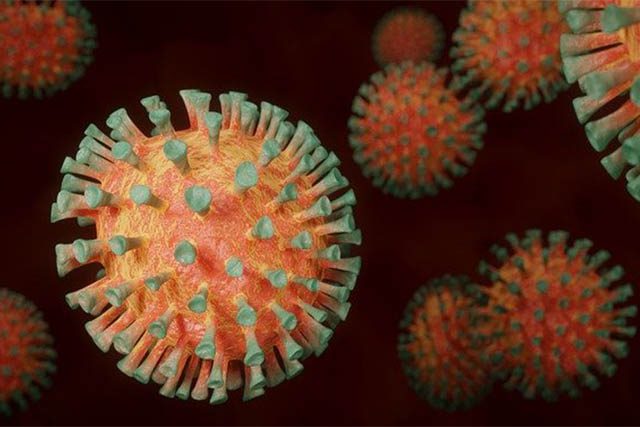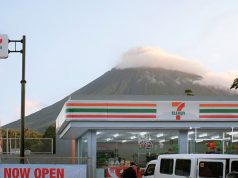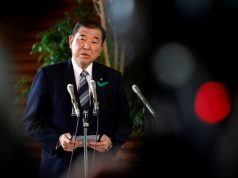The Philippines changed tune in using the place of origin to name novel coronavirus variants after a new one was detected on a patient from the country.
Local health authorities used to call the other coronavirus variants United Kingdom and South Africa.
It used to call the coronavirus variant from Brazil as “so-called Brazilian variant.”
Early this March, the Department of Health confirmed that a new coronavirus variant was detected on a male traveler in Japan came from the Philippines.
Japanese authorities were the first to announce this on March 13. Japan Times reported that the variant its health ministry found was distinct from the ones discovered in UK, South Africa and Brazil.
The DOH stated that there are already 98 cases of P.3 in the country.
To prevent discrimination
In a briefing on the same day, Dr. Anna Ong-Lim of the DOH technical working group on COVID-19 variants said that they assigned P-3 to this variant to avoid discrimination of the residents who live in these places.
“They’ve come back to us and told us na ito nga ay bagong variant and they are assigning it the P-3 lineage—or the designation of P-3 ‘no, iyon po ‘yung ating tawag doon,” said Ong-Lim.
Kasi iyon nga eh, medyo ayaw na natin iyong practice na ginagamit iyong pangalan ng isang lugar to assign the name of the virus or the variant kasi nga medyo nakaka-cause ng discrimination doon sa mga nanggagaling sa bansang iyon when in fact puwede naman siyang nakikita rin sa ibang lugar,” she added.
The health official also reiterated that they are veering away from the Philippine variant name in formal speeches, citing it an unacceptable practice.
“We want to do away nga with referring this as the PHL variant of the Philippine variant kasi nga hindi acceptable practice iyong ganoon na we assign place names, we’re trying to veer from that,” she said.
In an interview with CNN Philippines on March 15, Health Secretary Francisco Duque III also refused to label it as the Philippine variant.
“You call it a P.3. So far, it’s not yet a variant of concern. Hindi malinaw kung mas mabilis ba itong kumalat or ito ba ay mas malala ‘yung virulence, and hindi rin malinaw pa kung nakakaapekto rin ba ito sa effectiveness ng mga bakuna,” Duque said.
Different usage of coronavirus names
In its previous press releases and briefings, DOH called them based on their country or region where they were first discovered.
Local and international publications, particularly the news wires, likewise use these names to identify the new cases of variants found in different parts of the world.
Prior to the one traced from the Philippines, these are the labels DOH assigned to the variants:
- B.1.1.7 variant (UK variant)
- B.1.351 variant (South Africa variant)
- P.1 variant (so-called Brazilian variant)
Some social media users also poked fun at the name the health agency used.
“PhiliPPines. P.3,” one user said.
“So anong country ulit yung P.3 variant? (laughing emojis)” another wrote.
Other Filipinos cited a report from The Independent, a British newspaper, where the P.3 was identified as the “Philippine variant.”
They perceived the sudden correction hypocritical.
❎ variant first observed in PH
✅ PH variant https://t.co/XYlHgPo8dK— Raoul Manuel (@iamRaoulManuel) March 17, 2021
This is how the international community calls it.
Stop with the P3 BS. If it is first discovered and identified in the Philippines, CALL IT THE PHILIPPINE VARIANT. https://t.co/zXjDWexlO2
— kiko rustia (@kikorustia) March 17, 2021
Columnist Boo Chanco also shared a screenshot of a paper with a headline that read: “Killer from Manila? New Philippines strain in UK.”
The real killer is incompetence in handling the virus pic.twitter.com/jRgXwFYjol
— Boo Chanco (@boochanco) March 18, 2021
The World Health Organization has yet to issue a nomenclature for coronavirus variants.
Maria Van Kerkhove, head of the WHO’s emerging diseases unit, previously explained that they need to have easy-to-remember labels to variants with “potential impact” on public health.
“We don’t actually have to name every variant that’s of interest, but we do need to name the ones that are important, the ones that have potential impact on severity, on transmission, and any of them that have any impact on therapeutics and vaccines,” Kerkhove said.










